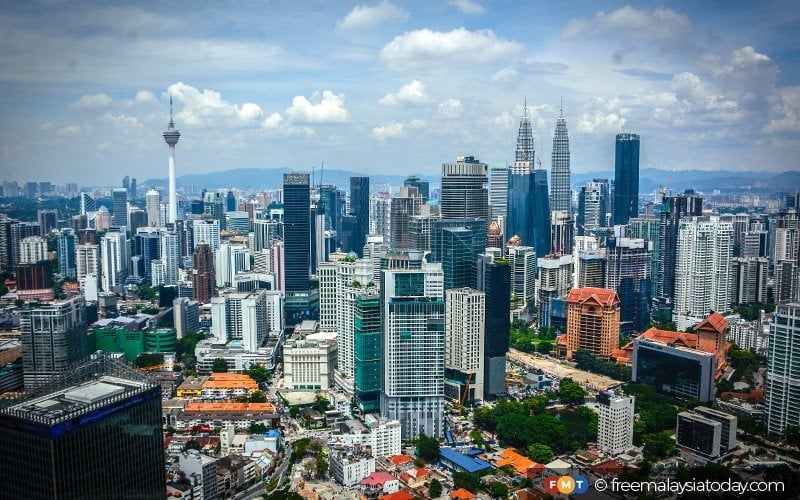
PETALING JAYA: Malaysians breathed a collective sigh of relief after being reassured by the finance ministry and Bank Negara Malaysia (BNM) that bank failures in the US pose little risk to the domestic banking system.
On Wednesday, deputy finance minister Steven Sim told the Dewan Rakyat the collapse of Silicon Valley Bank (SVB) in the US poses minimal and limited impact on Malaysia’s “resilient banking institutions”.
The next day, BNM gave an assurance that local lenders remained shielded from the troubles in the US’ banking sector. “The country’s lenders have no direct exposure to the failed US banks and the banking system remains well-capitalised,” it said.
The collapse of SVB, the second largest bank failure in the US since the 2007-2008 financial crisis, and New York-based Signature Bank, coupled with the bailout of Swiss lender Credit Suisse has roiled financial markets last week.
While it can be argued Malaysia’s strictly regulated banking institutions are in better health than their Western counterparts, it will be foolish to assume the economy has dodged a bullet.
Biggest threat is a US recession
Sunway University School of Business economics professor Yeah Kim Leng cautions against the indirect impact of the US banking crisis.
“There is a need to be vigilant against the indirect impact of a further slowdown in the US economy, where the recession risk has ratcheted up due to lower bank lending activities,” he told FMT Business.
Yeah said the impact to Malaysia and other Asian countries will be indirect, due to reduction in lending arising from the failure of US regional banks and bailouts.
He said Malaysian banks are adequately capitalised with ample loan loss provisions, and sufficient liquidity. He does not foresee any systemic issues in either asset quality or market losses because of holdings in government securities or bonds.
However, he is less optimistic when it comes to the US. “Further panic and contagion will result from the continuing distress in the US financial system,” he said, adding the issues in the US banking system remains a festering and developing problem.
“There may be a repeat of 2008-09 great financial crisis in the US, but it will not be caused by toxic mortgage assets this time, but rather their own government bonds,” said Yeah, a member of the advisory body advising Prime Minister and finance minister Anwar Ibrahim.
He was referring to huge losses on bond investments suffered by banks such as SVB as sharp interest rate hikes by the US Federal Reserve wreaked havoc on their balance sheets, making them insolvent.
Catching a cold when the US sneezes
Universiti Teknologi MARA senior lecturer Firdausi Suffian concurs with Yeah’s view that Malaysians need to be vigilant.
Despite the easing of fears of a bank contagion, he said, Malaysia cannot be too confident it is out of the woods given that “when the US sneezes, the world catches a cold”.
He was alluding to a relatively small and export-oriented economy like Malaysia’s which is vulnerable to economic shocks or downturns when major economies like the US fall into recession.
A global recession will hit Malaysia where it hurts – falling crude oil and palm oil prices, slowdown in the semiconductor industry, and decreasing exports, among others.
Firdausi commended BNM for not blindly following the US Federal Reserve, but rather making policy decisions relevant to our domestic market.
“In 2008-09 financial crisis, BNM responded swiftly by controlling bubbles and tightening monetary policy because of what we learnt from 1997-98 Asian financial crisis,” he said.
Silver lining for Malaysia?
Universiti Tun Abdul Razak economics professor Barjoyai Bardai notes there will not be any direct impact on the country unlike in 2008-09 where sub-prime loans were repackaged as derivatives, covered with insurance, and sold all over the world.
The emerging banking crisis in the US and Europe may even have a silver lining for Malaysia. “This time, it provides an opportunity for Malaysia. In the past, investments have always fled to the US, affecting our stock markets.
“Maybe now a reversal is on its way as US investors start flocking out of the US markets to Asia, and possibly Malaysia,” he said, adding he anticipates the FBM KLCI hitting the 1,600-point level later this year.
Center for Market Education CEO Carmelo Ferlito said that moving forward, the way in which the US authorities deal with this banking crisis will determine how other markets, including Malaysia, will be affected.
“What has happened in the US is the result of very low interest rates for too long, followed by an unavoidable credit crunch (triggered by aggressive hikes in interest rates) which generated a misallocation of investment resources,” he said.
Ferlito said the Malaysian banking system, which faced a less “roller coaster” rate hike policy compared to the US, and surrounded by more prudent banking regulations, should be less impacted by the developing banking crisis in the US. - FMT



No comments:
Post a Comment
Note: Only a member of this blog may post a comment.